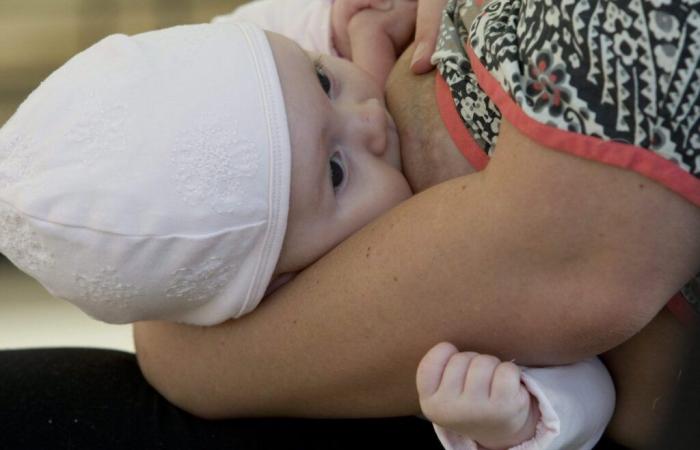MONTREAL — Inequalities remain in access to a doctor, even among newborns. Approximately 1 in 10 babies did not have a family doctor or pediatrician at the time the Institute of Statistics of Quebec (ISQ) conducted a survey, and this proportion is much higher among low-income families or those whose parents were born outside of Canada.
The ISQ report released Wednesday morning indicates that 21% of newborns do not have a doctor among single-parent families in Quebec and the proportion is the same for families where both parents (or a single parent) were born outside of Canada. Low-income households are also more affected, with 20% of babies living in these homes being orphaned by doctors.
“This leads us to believe that there are inequalities that start very early in children’s lives. It remains to be seen whether these inequalities will persist over time. We ask the question a few times in our survey and we will be able to follow the evolution of this indicator over time,” said Amélie Lavoie, coordinator of content and publications for longitudinal studies at the ISQ, in an interview.
In Quebec, the majority of babies are considered to be in excellent health (72%) or very good health (21%) by their parents. However, once again, certain family nests seem more affected by social inequalities. The proportion of babies perceived as being in less good health, either good, fair or poor, was 7% among all families who participated in the survey.
The perception of poorer health in one’s baby is higher among single-parent families (12%); those whose parents or a single parent were born outside of Canada (12%); and low-income families (10%).
Breastfeeding on the rise
On the other hand, we learn that the proportion of breastfed babies has increased significantly in Quebec since the end of the 1990s. The rate of breastfeeding during the first four months of life has increased by 25 percentage points. More precisely, it increased from 41% among babies born in 1997-1998 to 66% for those born in 2020-2021.
“Given that the Ministry of Health and Social Services has, in recent years, focused on the promotion of breastfeeding in surveillance plans, they have also implemented the “Baby Friendly Initiative” among other things, which aims to promote breastfeeding in hospitals. We can think that all these initiatives and organizations which aim to support breastfeeding […] have promoted the breastfeeding rate in Quebec,” commented Ms. Lavoie.
The report also addresses exclusive breastfeeding, that is, offering breast milk without combining it with other types of liquids or solid foods. The results show that 52% of babies born in hospitals or birth centers in 2020-2021 were exclusively breastfed at their place of birth. The Ministry of Health and Social Services has set itself the objective of reaching a proportion of 75% as part of the “Baby Friendly Initiative”.
“We do not take into account in our study that some babies may have received, for example, commercial infant formula for medical reasons,” explained Ms. Lavoie. We are going to have another investigation which will start in a few months or a few years which will perhaps allow us to better understand this phenomenon.
For the first four months of the infant’s life, the exclusive breastfeeding rate increased from 6% for babies born in 1997-1998 to 29% for the 2020-2021 sample.
The ISQ report was produced from the longitudinal study “Growing up in Quebec” which will follow more than 4,000 children born in 2020-2021 until they reach adulthood. A first cohort of babies born in 1997-1998 was the subject of the same type of study, which makes it possible to compare the two groups born almost 25 years apart.
Baby sleep
The data collected suggests that the majority of babies get enough sleep. The Canadian Pediatric Society recommends that babies aged 5 months sleep between 12 and 16 hours. Three-quarters of the infants in the study respected this indication.
At the time of the survey, almost half (49%) of babies aged at least 5 months were sleeping through the night, meaning they slept for at least six hours straight. In the month preceding the survey, about 13% of babies aged at least 5 months never woke during the night, 52% woke once or twice, and 35% woke three or more times.
“There appears to be an increase in babies waking a little more often at night and a lower proportion of babies sleeping 6 to 8 hours straight. We see that babies’ sleep is a little less consolidated than at the end of the 1990s, but we cannot compare strictly speaking. We feel that there is a trend, but there are other studies that we can do over the years to better understand this evolution of sleep,” indicates Ms. Lavoie.
Surprisingly, 62% of parents perceived their child’s nighttime waking as not at all problematic for them, and only 5% said it was very problematic.
—
The Canadian Press’ health content receives funding through a partnership with the Canadian Medical Association. The Canadian Press is solely responsible for editorial choices.






